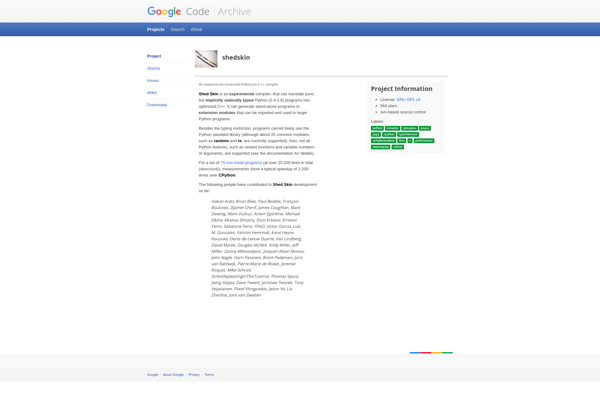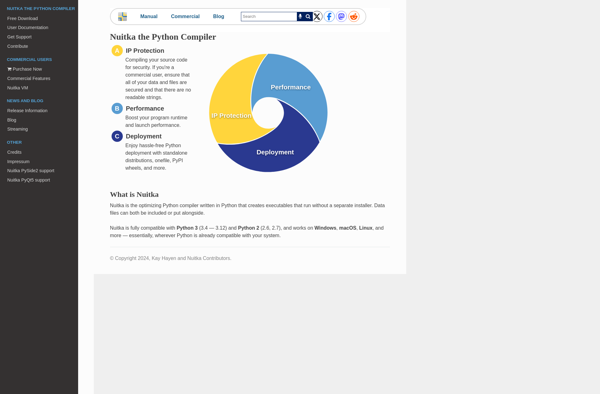Cython

Cython: Superset of Python for Speed and Efficiency
A programming language that combines the ease of use of Python with the performance of C/C++ code, Cython aims to be a superset of the Python language.
What is Cython?
Cython is a programming language that aims to be a superset of the Python programming language, while also being compilable to C/C++ code. It was originally developed by Stefan Behnel and others as an open-source project.
The key purpose and capability of Cython is to allow Python code to be compiled into C/C++ code in order to gain significant performance improvements compared to pure Python. This works by allowing Python code to be annotated with static type declarations for variables, functions, classes etc. The Cython compiler can then convert it into optimized C/C++ code while retaining full compatibility and interoperability with existing Python code.
Because Cython code compiles down to C/C++, it allows Python code to integrate natively with those languages and take advantage of the vast existing C/C++ ecosystems. This includes being able to directly call functions from C/C++ libraries and link against existing C/C++ codebases. As a superset of Python, Cython also retains advanced Python features like generators, list comprehensions, exceptions, garbage collection etc.
Cython enables Python programmers to add static typing to their code in order to remove abstraction layers present in pure Python that add overhead. This allows the resulting compiled code to be much faster than equivalent pure Python code in many cases. Typical performance gains can range from 2-100x faster, with specialized numeric and scientific code seeing especially large improvements.
Overall, Cython occupies a unique niche by bridging Python and C/C++ to provide an optimal blend of development efficiency, code performance, access to existing C/C++ code, and interoperability with Python codebases.
Cython Features
Features
- Allows writing C extensions for Python
- Can call C functions and declare C types from Python code
- Can compile Python code to C/C++ for improved performance
- Supports calling Python from C code
- Static typing for performance and efficiency
- Can access C libraries directly from Python code
Pricing
- Open Source
Pros
Cons
Official Links
Reviews & Ratings
Login to ReviewThe Best Cython Alternatives
Top Development and Programming Languages and other similar apps like Cython
Shed Skin

Nuitka
